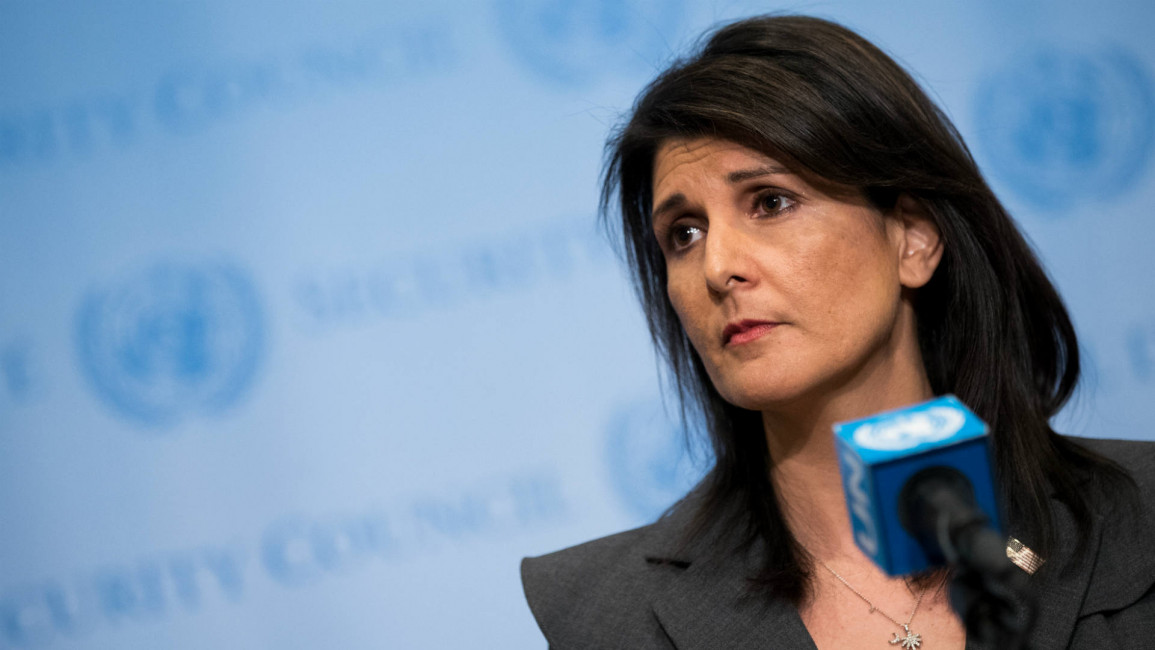US to propose new UN Syria chemical weapons inquiry
US Ambassador to the UN Nikki Haley wants the Security Council to create a new inquiry to determine who is behind chemical weapons attacks in Syria, Reuters reported.
On Thursday, Haley said she hopes the vote to create a new inquiry will take place next week.
In November, Russia blocked for the third time in a month the Joint Investigative Mechanism (JIM), a previous investigation into chemical attacks.
Russia proposed its own resolution in January to create a chemical weapons inquiry, but has not put it forward for a vote. The US criticised the Russian text as a means to distract from the JIM.
“When the Russians put their mechanism forward that’s a non-starter and so that’s why we’re coming back out with another one,” Hayley told Reuters. “We’ve been working on it since the JIM was killed”.
“We’ve taken into account certain things that (the Russians) thought were an issue, but if they want no mechanism at all they’ll veto it,” Haley added.
The Organisation for the Prohibition of Chemical Weapons (OPCW) had ruled that the Syrian regime carried out a sarin gas attack in April 2017 and also carried out several chlorine attacks.
The OPCW also found that mustard gas was used in Marea, north of Aleppo, a town where Islamic State fighters were battling another rebel group.
Experts at the UN discussed the US’ draft resolution on Thursday, but Russia reportedly did not attend.
The draft text calls for the creation of a new UN body that would assign blame for chemical weapons attacks in Syria.
Under the 2013 Framework for Elimination of Syrian Chemical Weapons, the Syrian regime had previously agreed to destroy its chemical weapons stockpiles following a deadly attack that left hundreds dead in Eastern Ghouta.
Western officials have expressed doubt about the completeness of the Syrian regime’s chemical weapons disclosures. In May 2015, OPCW inspectors found traces of sarin at a military site in Syria despite executing the 2013 agreement.
Chlorine, as a common industrial agent, is also outside the scope of the 2013 framework.



